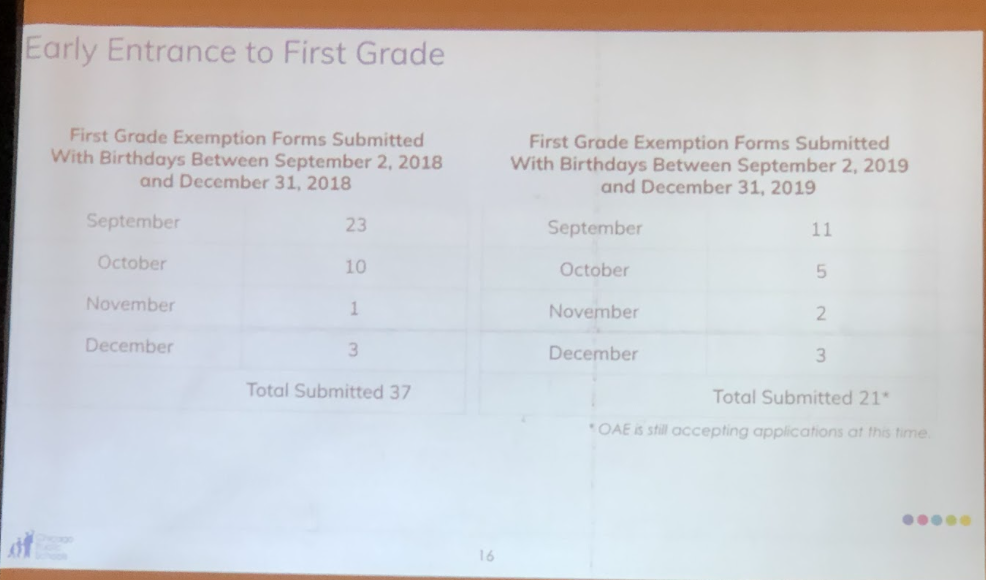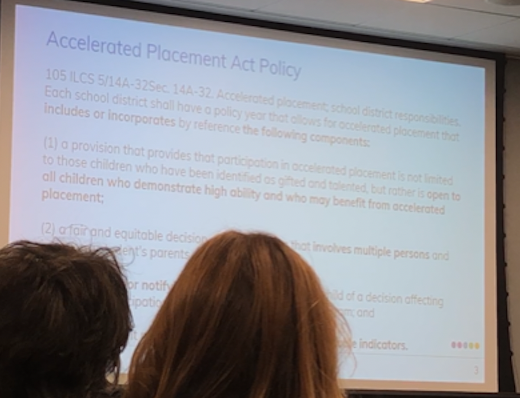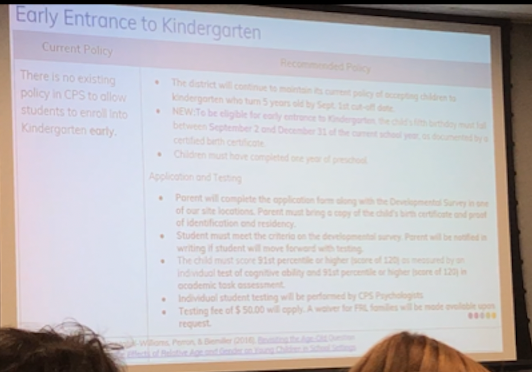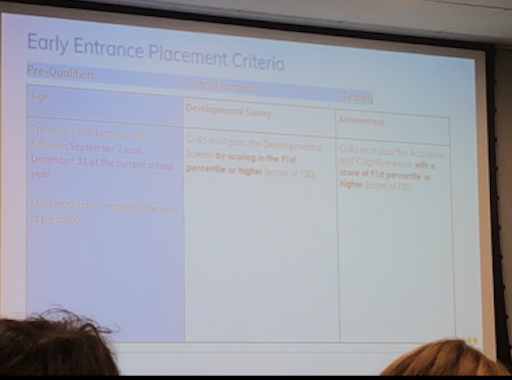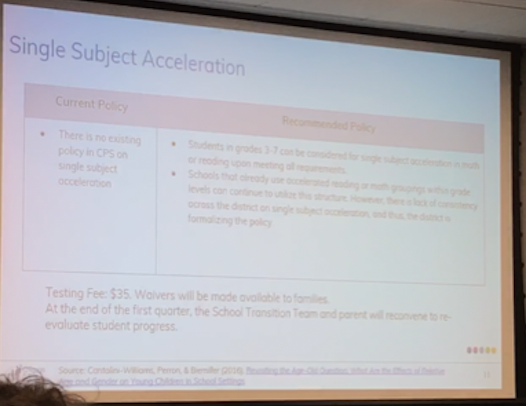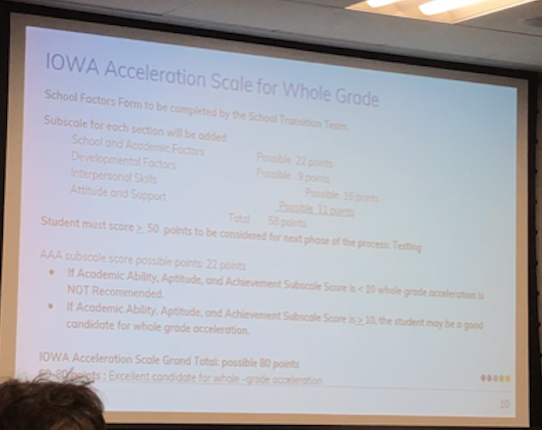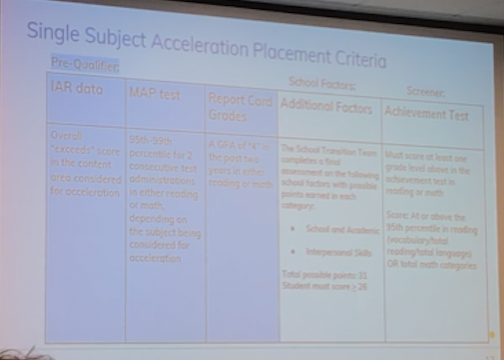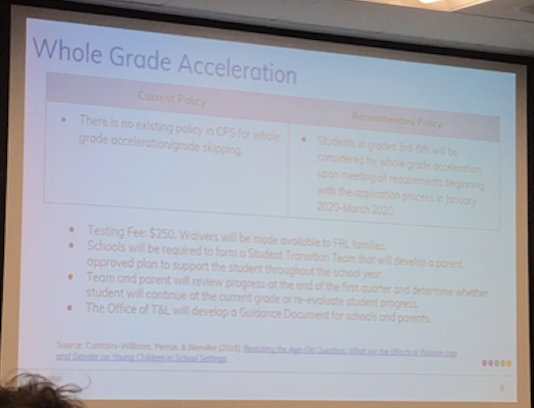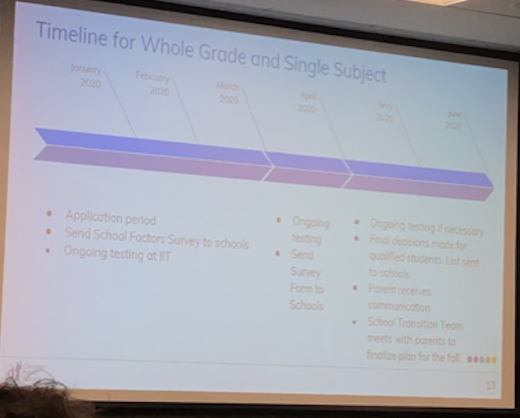Yesterday, the Illinois Department of Education held their budget meeting at the James Thompson Center in Chicago, and today, their board meeting. At the board meeting, we asked for the following things:
Restore pre-2003 levels of gifted ed funding in the state.
Dedicate full-time designated staff member at ISBE to oversee gifted education and challenges such as getting the student info report cards actually submitted and the data published, and compliance with the state Accelerated Placement Act, as well as to support professional development.
The Illinois report card law has been in effect for a few years but the data is not coming in and not being made available. This data is very important as it will highlight the educational options for gifted and talented students in Illinois. Send a guidance reminder to districts about compliance with the new report card requirements as to gifted and talented students in March.
Fund professional development for teachers working with gifted students as there is none right now, and ask for gifted and talented funding. At a minimum, fund training in differentiation to benefit all students.
YOU can still participate in gifted advocacy in 2 ways on these issues right now:
attend and present your expierience with gifted education at 12/18/2019 ISBE board of Ed meeting in Springfield .
Submit public comments here toward the state budget hearing, using the points below. When you click the above link, you will want to select the circled option. You can then include whatever total you wish, from the points below.
$120K Full Time dedicated position at the state level to oversee gifted education including IL Report Card, Dual Enrollment, and Accelerated Placement Act Implementation.
There are approximately 40,000 gifted students in Illinois schools using population statistics. If we assume that they are in a classroom of 30 students, they will require 1,300 teachers. It would be nice if 10% of those teachers could receive resources from IAGC, the Illinois Gifted Children's Association, for $50.00 per teacher. $65,000 would cover those professional service vouchers which existed prior to the state removing the funding in 2003.
Gifted and Talented students in the state do not get adequate support or opportunities for learning. Schools use budget concerns as the number one reason to not adequately support the gifted and talented students. But, like all students they deserve equitable learning. We think that this can be achieved with $32,000,000.
Fund the allowance provisioned by the new state law for the report card to give schools $13 per served gifted student, up to at least $1,000.000.
Total here is $33,185,000.
Don't forget, IAGC has several scholarships for both teachers and students - a great opportunity if you need help to afford a MAGE class. Applications are due end of the month!
In other state news, mark your calendar for January 15th if you seek to receive Empower Illinois credits toward private school.





